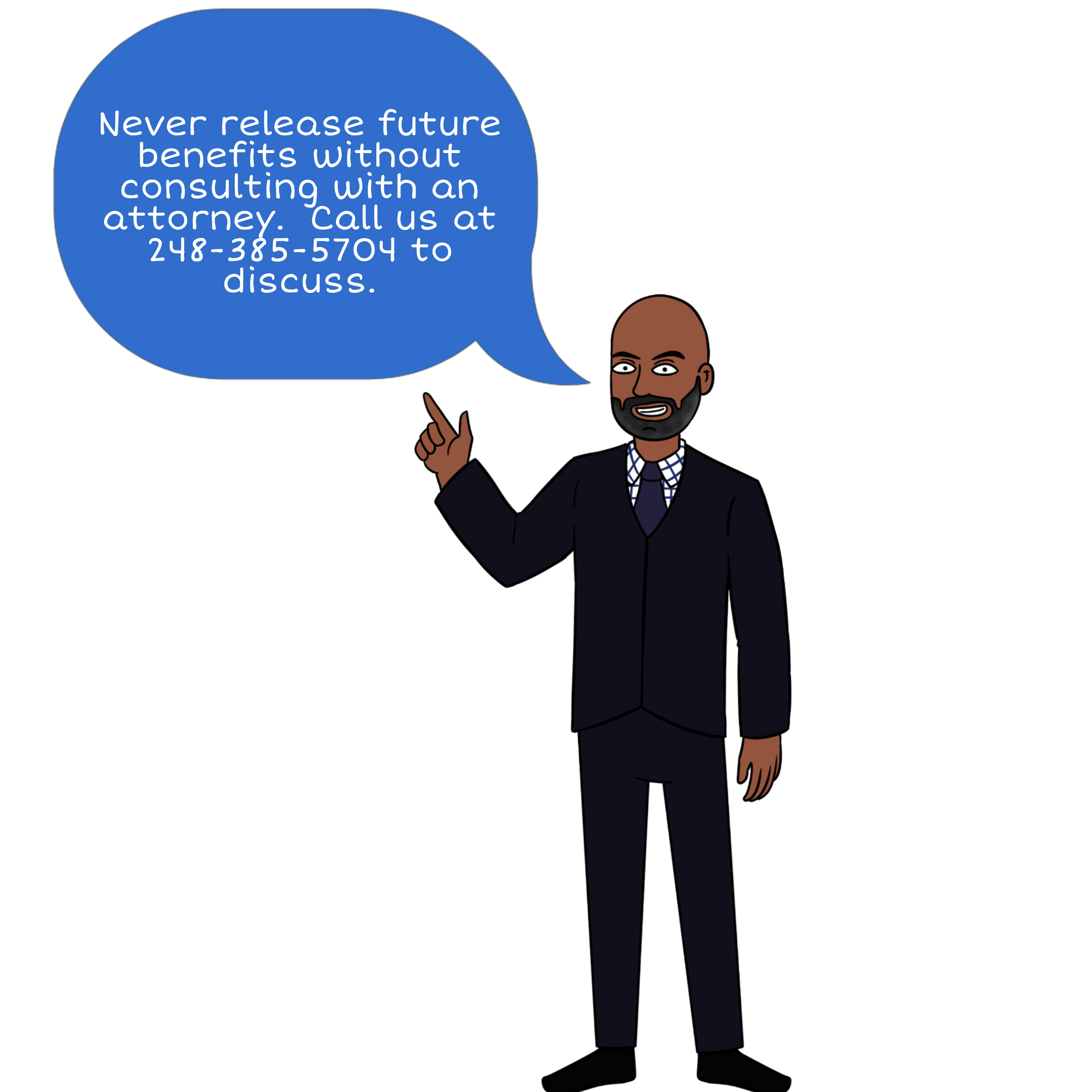Releasing Futures
The Auto Accident Portal
Selling your right to reimbursement
Near the end of every PIP case, your automobile No-Fault insurance company will undoubtedly make an offer to pay you to “release futures.” A release of futures is essentially an agreement to let the insurance company off the hook for future payments for an accident. The insurance company will offer you money now so they don’t have to pay doctors later.

Why car insurance companies want a Release of Futures
Automobile Insurance companies want to obtain a release of futures for two main reasons – to limit exposure and to obtain finality. When a person is severely injured in a motor vehicle accident, they often will need treatment for several years or even decades. The cost of the future treatment can be immense. Accordingly, it is in the interest of the insurance company to try and pay the injured victim an amount early on, in exchange for a release of liability. This limits the insurers exposure to massive bills from medical providers later on.
Additionally, insurance companies like to obtain finality on claims for accounting and investment purposes. When a claim is open, large amounts of money must be kept in “reserve” by an insurance company in the event the insurer will have to make future payments on a claim. The money held in reserves often cannot be used by the insurance companies for any other purpose other than to pay on a claim.
Holding millions of dollars in reserve is financially detrimental to the insurance companies for one big reason – when the money is reserved it is not freely invested. Insurance companies make a significant amount of their income through investing. The less money available for investing, the less money the insurance company can make on investments. Accordingly, insurance adjusters are always looking for finality to free up reserves for investing.
Should I consider a Release of Futures?
If releasing futures means the auto insurance company no longer has to pay medical bill, why on earth would someone agree to that??? Because…MONEY. The insurance company is willing to pay YOU instead of your doctors if you agree to release futures. With that money, you can still pay for treatment yourself. Or even better, if you have secondary (health) insurance, you can start having your doctors start billing your health insurance and have both medical coverage AND extra money in your pocket from the futures buyout. Further, a release of futures only pertains to the specific accident(s) in the written agreement. You are not releasing your right to future medical care in subsequent accidents.
However, before you run to cash in your futures, make sure you carefully discuss this with your attorney and medical providers. If you were involved in a catastrophic claim where you will need significant long-term care or home care, releasing futures would be imprudent and potentially dangerous. Also, some health insurances expressly restrict coverage of accident-related services when futures are released. Always talk to your attorney before considering a release of futures.
For help with analyzing an offer to release futures please call us at 248-385-5704, or email us here.
How much will I get for a release of futures?
The value of your future benefits will be based on a large number of factors from the type of injuries you have, to the insurance company/adjuster you are dealing with, to the amount of coverage you have available. However, the most significant factor that influences the value of futures is the nature, extent, and likelihood of future treatment.
If you have stopped going to the doctors and have returned to work. Your futures are not worth very much to the insurance company. You may not even get $5,000 for a buyout in that scenario. However, if you have serious injuries with the potential for surgeries then the insurance company will want to try and pay you a lot more upfront so that it does not have to pay for the very expensive surgery and the after-care. Buying out a surgery is easily five-figures. If you have a major attendant care claim, the value of your futures could be in the six-figures. It all depends.
Impact of policy caps
The Michigan No-Fault Act was amended to allow Michigan auto insurance companies to start selling “capped” policies as of July 1, 2020. Prior to that date, No-Fault allowable expenses (medical coverage) were unlimited lifetime benefits. If you have a capped policy, the value of your futures may be very limited. For instance, if your PIP cap is $250,000 and the insurance company has already paid out $225,000, it might not offer you anything for a futures buyout and just gamble that you will not be willing to file suit for $25,000. Policy caps were a wonderful win for the insurance lobby when the No-Fault Act was amended, for obvious reasons.






